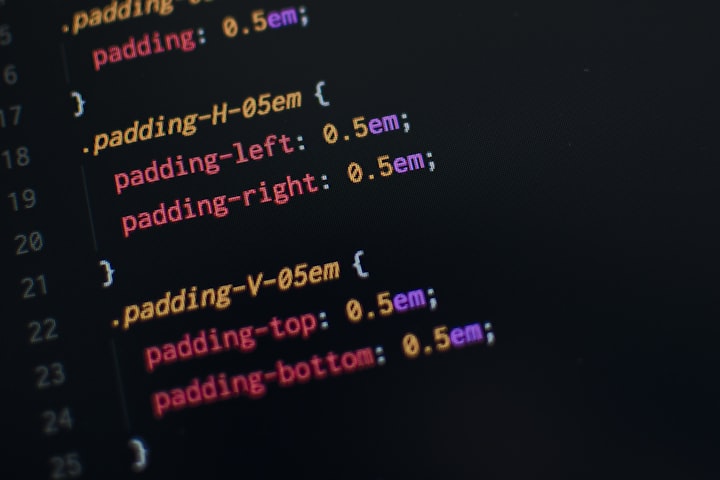

What is artificial intelligence and how does it work?
Artificial intelligence is a subset of machine learning that deals with the development of intelligent computer programs.
How to Control Dangerous Technology
Ultimately, keeping a lid on dangerous A.I. technology will require far-reaching oversight. But experts are not optimistic about the current state of government institutions able to navigate this process effectively.
As we told you earlier this week, more than 1,000 technology leaders and researchers have urged artificial intelligence labs to pause development of the most advanced systems for fear that they present profound risks to society and humanity as we know it. These experts are concerned about near-term dangers like the spread of disinformation and risk that people would rely on these systems for inaccurate or harmful medical and emotional advice, but they also see potential long-term dangers in the race to create digital minds that no one can understand or predict reliably.
While many critics are focused on potential short-term dangers posed by A.I., there is another group of thinkers who believe that its capabilities could ultimately destroy humanity – a perspective reflected in an open letter published earlier this week by more than 1,000 tech leaders urging AI labs around the world to take a step back before it's too late
Technology and the Changing Nature of Change
When people think of new technologies, they often think of things like Moore’s Law, the apparently miraculous doubling of power of microprocessors. But when researchers look at historical patterns, they often find long gestation periods before these apparent accelerations take place- sometimes three or four decades. This means that it may be many years before we see similar levels of acceleration in terms of technological change again. In fact, even now there are many areas where automation is slowly creeping into mainstream adoption- for example, with automated warehouses and production lines for high-value parts. It will likely take some time before these technologies become widespread and accepted by most businesses.
The Rise of AI Healthcare
Thanks to its big data analysis capabilities, AI is already changing the way humans interact with medical providers. It helps identify diseases more quickly and accurately, speed up and streamline drug discovery, and even monitor patients through virtual nursing assistants.
The Impact of Artificial Intelligence on the Future
Artificial intelligence has the potential to change the future in a number of ways. First and foremost, it could help us achieve greater goals more efficiently. For companies like OpenAI and DeepMind, a lab that’s owned by Google’s parent company, the plan is to push this technology as far as it will go. They hope to eventually build what researchers call artificial general intelligence, or A.G.I.- which is a machine that can do anything the human brain can do- but they know that this won’t be easy task. New breakthroughs will be necessary in order for AI to become truly intelligent- something many believe we should avoid at all costs if we want our future generations to thrive . However there are also risks associated with artificial intelligence development; for example , if systems are not properly aligned with human values or goals they could have unintended consequences which would be detrimental both socially and environmentally . It remains an open question whether or not we want AI technologies to get too powerful- but one thing is for sure: The impact of these developments on our world will only continue to grow over time
The Potential Impact of Artificial General Intelligence on Society
The potential impact of artificial general intelligence (AGI) on society is largely unknown, but it has the potential to have a significant impact on many aspects of our lives. Some researchers are concerned about the possibility that AGI could be used for evil purposes, such as enabling brutal global dictatorships with unprecedented inequality and surveillance. However, if we manage to steer carefully towards its development, AGI could lead to a fantastic future where everyone is better off.
What are some potential dangers of artificial intelligence?
The benefits of artificial intelligence include making life easier and more efficient, automating processes, improving safety and security, increasing efficiency in business operations
Artificial intelligence faces a number of dangers, including the possibility that AI could be twisted to create dangerous and self-aware machines. There is also potential for artificial intelligences to escape from constraints set on them, leading them towards destructive or harmful behaviours. Finally, there is the risk that poorly designed or managed AI systems could cause significant damage or loss of data.
Artificial intelligence can be used for bad purposes if it is not managed properly. AI systems are capable of performing complex tasks with relative ease, which could lead to misuse by malicious actors. For example, a company might use machine learning algorithms to optimize website performance or identify fraudulent activity on the platform. If improperly implemented, this technology could be used to exploit users or unlawfully gain access to sensitive information
The advantages of artificial intelligence include:
1. Artificial Intelligence can automate repetitive tasks, freeing up human resources to focus on more important work.
2. AI is able to learn and improve over time, making it an ever-more powerful tool for analyzing data and completing complex tasks.
3. It can help companies reduce costs by automating processes or providing insights that would otherwise be missed in manual analysis; this reduces the need for resource expenditure AND improves accuracy/efficiency overall!
Artificial intelligence is a process that involves computer programs that can reason, learn and make decisions.
The Future of Transportation with Artificial Intelligence
The future of transportation is definitely going to be drastically changed by artificial intelligence. Self-driving cars and AI travel planners are just a couple of examples of how this technology will change the way we get from point A to point B. While autonomous vehicles are not perfect, they will one day make traveling much easier and more efficient.
Is AI Already Affecting Our Privacy?
Of course, much has been made of the fact that AI’s reliance on big data is already impacting privacy in a major way. Look no further than Cambridge Analytica’s Facebook shenanigans or Amazon’s Alexa eavesdropping, two among many examples of tech gone wild. Without proper regulations and self-imposed limitations, critics argue, the situation will get even worse.
In 2015, Apple CEO Tim Cook derided competitors Google and Meta for greed-driven data mining.Cambridge Analytica’s Facebook shenanigan seaves dropping Apple CEO Tim Cook derided “They’re gobbling up everything they can learn about you and trying to monetize it,” he said in a 2015 speech. “We think that’s wrong.
Later, during a talk in Brussels, Belgium,.Cook expounded on his concern:
Plenty of others agree..In a 2018 paper published by UK-based human rights and privacy groups Article 19 and Privacy International,.paperThe authors concede that the collection of large amounts of data can be used for trying to predict future behavior in benign ways,. But there's also a real threat that it will negatively impact personal privacy and the right to freedom from discrimination
How AI will Change the World
AI is set to change the world in ways that will be bad for the bottom 90% of people. Jobs that are routine and quantitative will be replaced by AI, displacing those who rely on them. Those who learn new skills quickly enough to keep up with AI's progress can avoid being hurt badly, but it won't happen overnight.
Risks of Emerging Technologies
Many A.I. executives believe the technologies they are creating will improve our lives, but some have been warning for decades about a darker scenario- where our creations don't always do what we want them to do or they follow our instructions in unpredictable ways with potentially dire consequences.
A.I experts talk about "alignment" - making sure A.I systems are in line with human values and goals, before releasing them into the world for use by millions of people worldwide. However, it's impossible to eliminate all potential misuse of these technologies- as a system like this learns from data, it develops skills that its creators never expected and which may go wrong after millions of people start using it."
The Importance of General Intelligence in the Workplace
General intelligence is important in the workplace because it allows systems to solve a variety of problems efficiently. Specialized AI systems, which rely on human-generated data, are able to mimic human behavior on well-known tasks and incorporate human biases. However, these systems are not as robust and do not always perform correctly. Additionally, humans remain better at social interaction than machines and can adapt more easily to unpredictable situations.
How will artificial intelligence change the world in the future?
Artificial intelligence (AI) is a computer science discipline that deals with the creation of intelligent agents, in particular, computers that can reason and learn like humans. AI research focuses on creating algorithms that allow machines to acquire skills analogous to those of human beings, both generally and in specific fields.
Artificial intelligence (AI) has the potential to change many aspects of our world, including how we work, live and communicate. It can help us automate tasks and make decisions more quickly and effectively; it could even enable us to create new forms of intelligent machines.
Some potential benefits of artificial intelligence include:
-Greater efficiency and accuracy in tasks that are currently done by humans, such as data entry or research.
-Ability to identify patterns and trends more easily than humans can, which could lead to increased safety and security for corporations or other organizations.
-Reduced costs associated with certain services traditionally performed by human beings, like customer service or insurance claims processing.
The Possibilities of Artificial General Intelligence
Artificial general intelligence (AGI) is a hypothetical form of intelligence that is much more advanced than what humans currently possess. AGI has long been the subject of fantasy, but the chances of it being realized anytime soon are pretty slim. Although AI is not currently equipped to fully understand human language, if we reach a point where it can do so, AGI systems would be able to read and understand everything ever written.
One project at John Laird's lab involves using natural language instructions to teach a robot simple games like Tic-Tac-Toe and puzzles. Those directives typically involve a description of the goal, a rundown of legal moves and failure situations. The robot internalizes those directives and uses them to plan its actions - which suggests that even relatively rudimentary forms of AGI are already starting to exhibit some cognitive abilities similar to those possessed by humans. However, breakthroughs in this field are slowmoving - slower, at least than researchers would like - so there's still plenty left for us learn about how intelligent artificial beings could potentially become
How can we ensure that artificial intelligence benefits everyone, not just those who own the technology?
Artificial intelligence (AI) is a field of computer science that deals with the creation of intelligent agents, which are systems that can reason and learn.Artificial intelligence can improve the future by making life easier and more efficient. For example, robots could help us in factories and other workplaces, while AI technologies could be used to create smarter machines that can learn on their own.
There are several ways to ensure that AI benefits everyone, not just those who own the technology. For example, it can be implemented in a way that is open source so that anyone can access and use it. Additionally, there must be policies put into place to prevent companies from exploiting or abusing AI technologies for their own benefit.
About the Creator
Synthetic Nexus
Synthetic Nexus Innovations blog






Comments
There are no comments for this story
Be the first to respond and start the conversation.